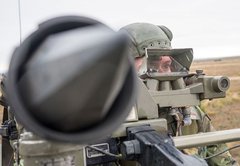Ask countries we protect to pay more for joint defense
Donald Trump
"I think NATO's great. But it's got to be modernized. And countries that we're protecting have to pay what they're supposed to be paying."
Trump-O-Meter

Promise Kept

